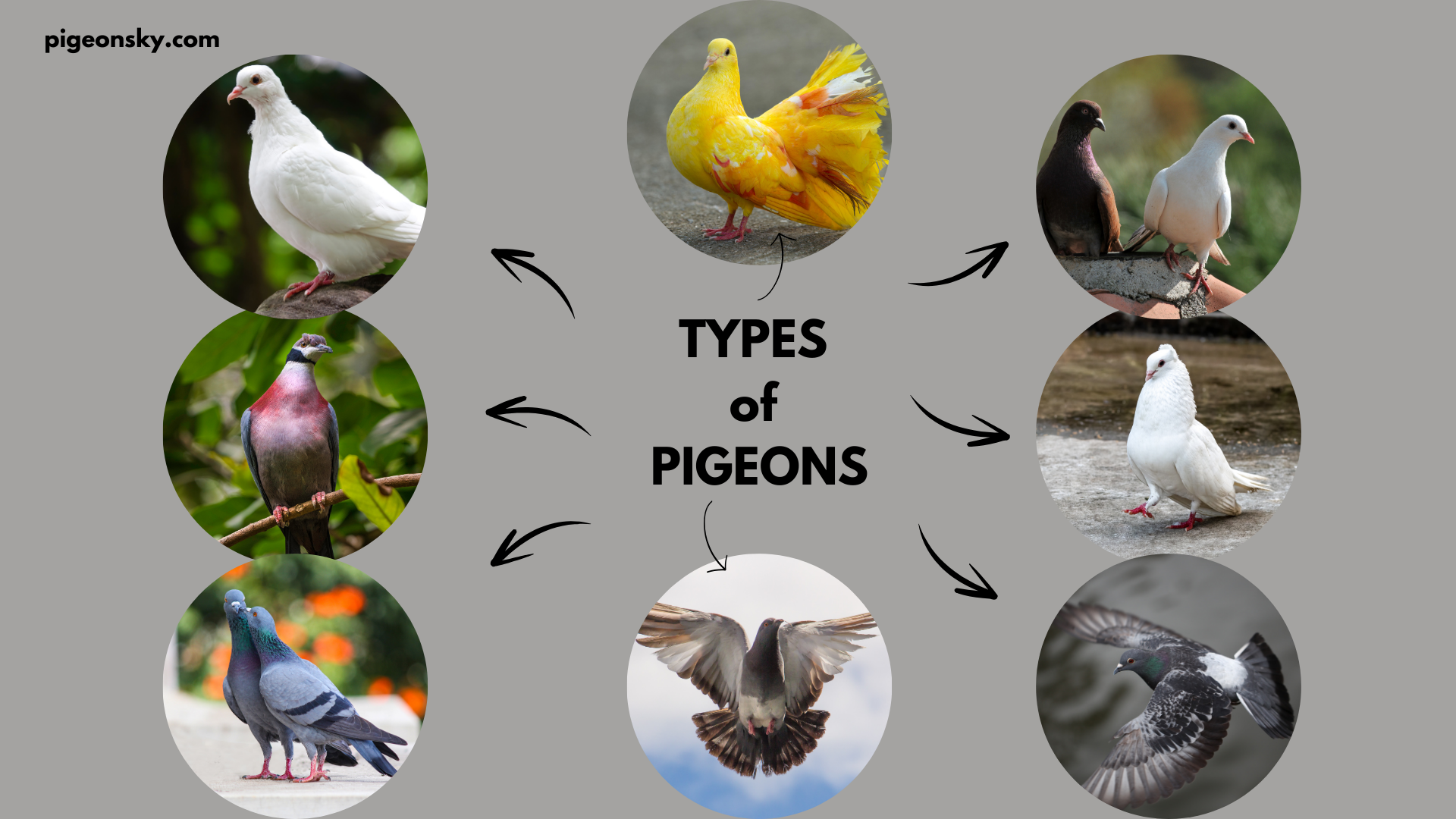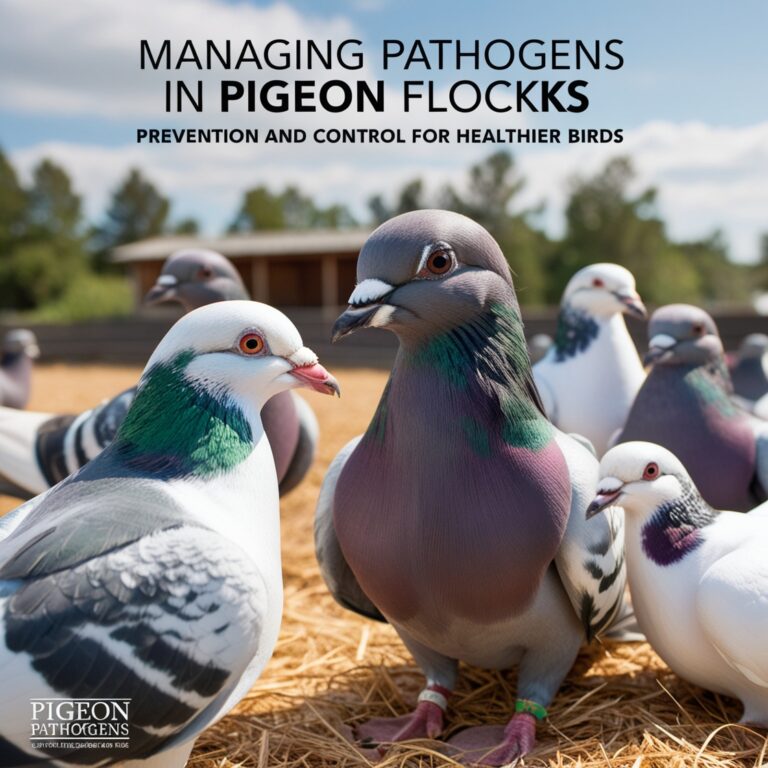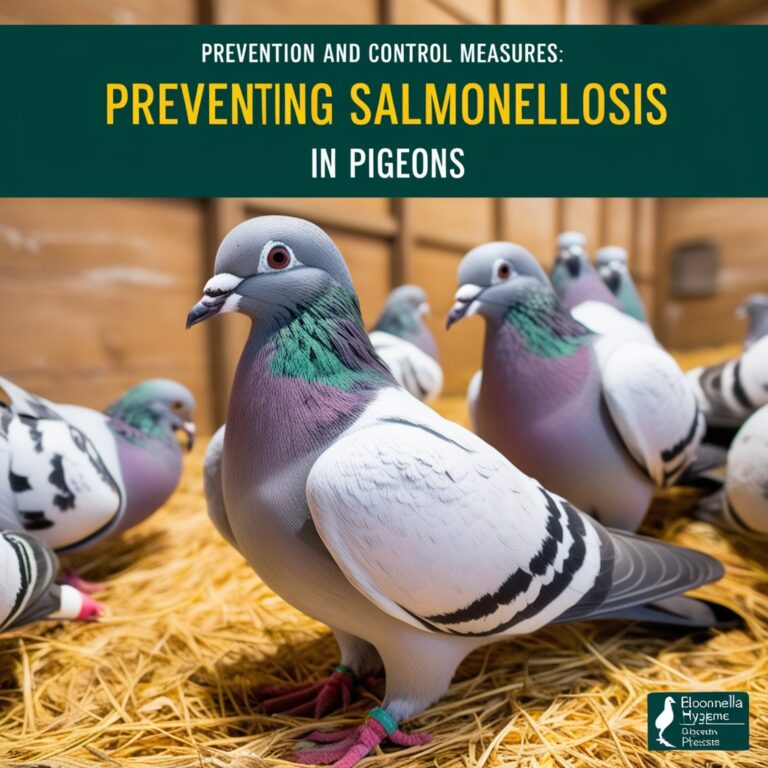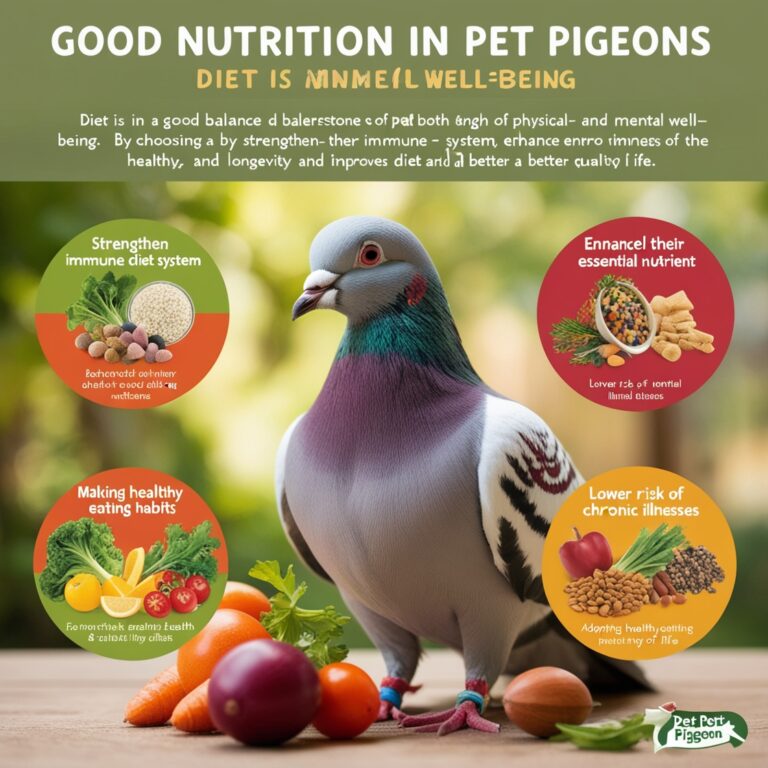Types of Pet Pigeon
Pet Pigeons: A Unique Companion
Owning a pigeon as a pet comes with numerous benefits, particularly in terms of ease of care. Pigeons are resilient creatures that don’t require the intensive attention that higher-maintenance pets, like dogs or cats, often do. With the right food, shelter, and social interaction, these birds can lead long, fulfilling lives as cherished companions. Additionally, pigeons are naturally clean animals, regularly grooming themselves to maintain their appearance.
For individuals living in smaller environments or those who prefer a low-energy pet, pigeons are an excellent option. They are also generally quieter than other bird species, such as parrots, making them suitable for apartment living.
Whether you’re captivated by the streamlined Racing Homer, the graceful Fantail, or the gentle King Pigeon, there’s a type of pet pigeon that can meet your preferences. By familiarizing yourself with the various breeds, their colors, and their personality traits, you can choose the perfect pigeon for your home. These loyal, calm, and often strikingly beautiful birds can be wonderful companions for those who appreciate their unique charm.
Exploring Different Types of Pet Pigeons
Pigeons, affectionately referred to as “the birds of peace,” have been human companions for centuries. These delightful birds have won over many hearts not only for their remarkable homing instincts but also for their beauty, intelligence, and distinctive personalities. For pet owners, pigeons can be excellent companions due to their gentle nature and straightforward care requirements. But did you know there are numerous pigeon varieties? In this guide, we will delve into the diverse types of pigeons, their characteristics, colors, and tips on selecting the right one for your lifestyle.

Understanding Pigeon Breeds
When people think of pigeons, they often imagine the common city pigeon, also known as the Rock Dove. However, the world of pigeons is diverse, with various breeds that differ in appearance, color, size, and behavior. Each pigeon breed has its own charm, and understanding these differences can help you choose the right type of pigeon for your home.
1. Racing Homers
The Racing Homer is one of the most well-known types of pigeons. These birds are famed for their speed and homing instinct, making them the star athletes of the pigeon world. Racing Homers are medium-sized birds with strong, muscular bodies and smooth feathers. They come in a variety of colors, such as blue-gray, white, and black. Their wings are long and powerful, allowing them to fly at impressive speeds over long distances.
Key Stats:
Average Weight: 12-16 ounces
Wingspan: 10-12 inches
Average Lifespan: 10-15 years
Racing Homers are energetic birds that thrive in active environments. If you enjoy watching your pet take flight or want a pigeon with an athletic edge, this breed might be the perfect choice.
2. Fantails
The Fantail pigeon is famous for its striking fan-shaped tail. This breed stands out in the pigeon community due to its appearance. Fantails have small, rounded bodies with elaborate tails that can sometimes include 30 to 40 feathers. They come in a variety of colors, including pure white, creamy pastels, and even speckled patterns.
Key Stats:
Average Weight: 10-12 ounces
Wingspan: 8-10 inches
Average Lifespan: 10-12 years
Fantails are often used in bird shows and exhibitions due to their beauty. They are also known for being gentle and affectionate birds, making them excellent pets for first-time pigeon owners.
3. King Pigeons
If you’re looking for a larger, more robust pigeon, the King Pigeon may be the bird for you. King Pigeons are heavyset with broad chests and large wings. They are often raised for meat in some parts of the world, but they also make wonderful pets due to their calm and friendly nature. Kings come in a variety of colors, such as white, blue, and even reddish-brown.
Key Stats:
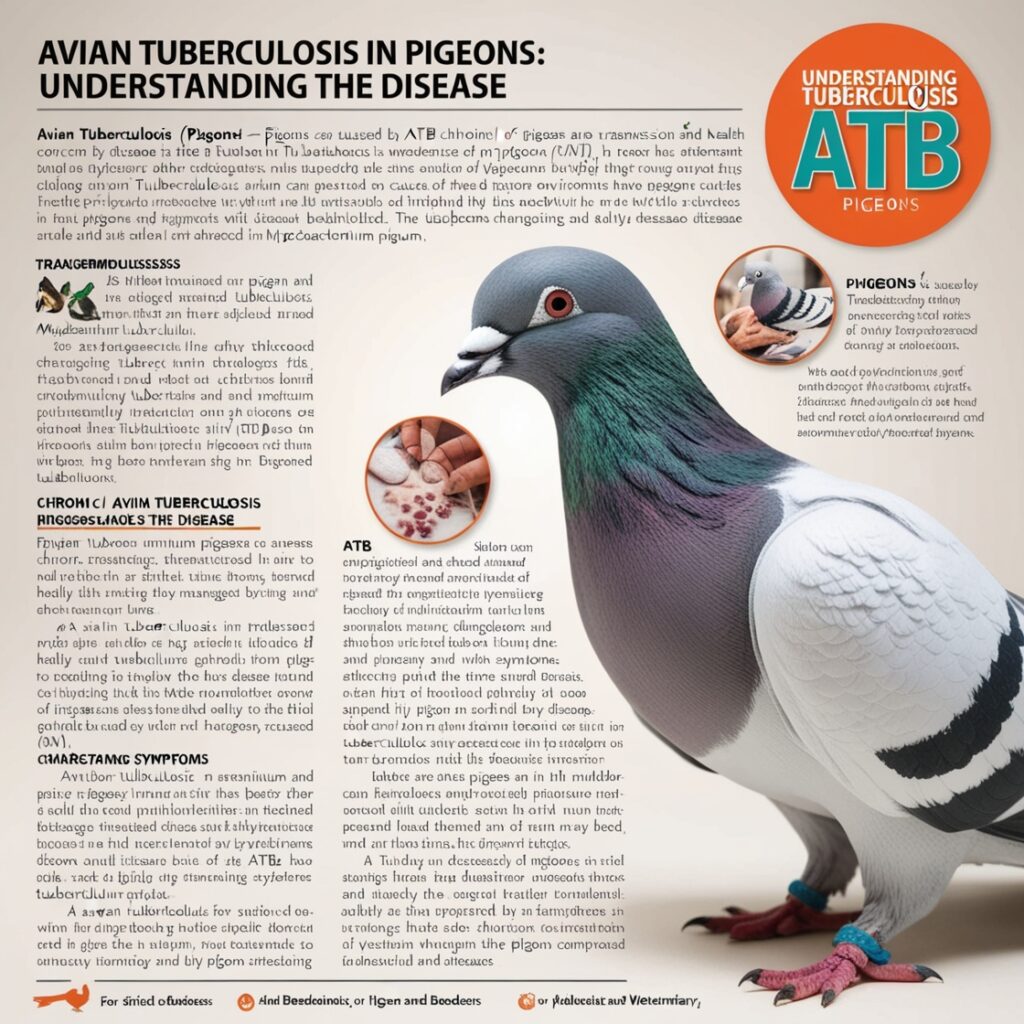
Average Weight: 25-32 ounces
Wingspan: 15-17 inches
Average Lifespan: 8-12 years
King Pigeons are known for their laid-back attitude and gentle nature. They tend to be less active than other breeds, making them ideal for those who prefer a more sedentary pet.
4. Rollers and Tumblers
The Roller and Tumbler pigeons are renowned for their unique flight behaviors. These pigeons are famous for their acrobatic skills, often performing mid-air somersaults and rolls. There are several varieties of Rollers and Tumblers, with differences in the extent of their rolling behavior. They are medium-sized birds with short, compact bodies, and they come in many colors, including black, red, yellow, and white.
Key Stats:
Average Weight: 10-14 ounces
Wingspan: 9-11 inches
Average Lifespan: 10-14 years
These birds are highly energetic and require ample space to fly and perform their aerial tricks. Rollers and Tumblers are ideal for pigeon enthusiasts who want a pet that provides both entertainment and companionship.
5. Modena Pigeons
The Modena is a compact and stocky pigeon breed that has been bred for its striking looks and easygoing nature. Modenas have short bodies, large chests, and upright postures, giving them a proud and elegant appearance. They come in a wide variety of colors, including blue, red, yellow, and silver. Some Modenas even have a combination of two or more colors, with patterns like mottled or checkered feathers.
Key Stats:
Average Weight: 12-14 ounces
Wingspan: 8-10 inches
Average Lifespan: 8-10 years
Modena pigeons are known for their calm demeanor and make great pets for those looking for a low-maintenance bird. They are not known for their flying abilities but are instead kept for their beauty and gentle disposition.
6. Jacobins
The Jacobin pigeon is easily recognizable by its unique feathered hood, which surrounds its head like a fluffy crown. This breed is often referred to as one of the “royalty” of the pigeon world due to its regal appearance. Jacobins are medium-sized birds with elongated bodies and long tails. They are often white, black, or mixed with striking patterns.
Key Stats:
Average Weight: 11-13 ounces
Wingspan: 9-11 inches
Average Lifespan: 10-12 years
Jacobins are mostly bred for shows and exhibitions, but they can also be kept as pets for those who appreciate their unique look. They are relatively calm and gentle birds but may require more grooming due to their elaborate feathers.
Identifying Pigeons by Color and Pattern
One of the easiest ways to identify a pigeon’s breed is by looking at its color and feather patterns. Different breeds are known for specific colorations, which can help narrow down your options when choosing a pet pigeon.
Pigeon Care and Housing (continued)
Taking care of pigeons is relatively simple, but it’s important to provide them with a comfortable and clean living environment. Pigeons thrive best in spacious cages or aviaries. Their housing should have plenty of space for flying, as pigeons are naturally active birds. Ensure their environment includes perches for roosting, a nesting area, and a clean, dry space for resting. Additionally, pigeons should be housed in a location that offers protection from extreme weather and predators.
Pigeons also require regular cleaning of their living space. This includes replacing bedding materials like straw or wood shavings, wiping down surfaces, and removing any leftover food to prevent disease or insect infestations.
Feeding Your Pigeon
A pigeon’s diet should be well-balanced and consist primarily of grains, seeds, and specialized pigeon pellets. High-quality pigeon feed often includes a mix of grains such as millet, corn, and wheat. Seeds like sunflower seeds can also be offered, but they should not be the main component of the pigeon’s diet because of their high-fat content.
Fresh water must be available at all times, and you should change the water daily to ensure it remains clean. In addition, you can supplement their diet with occasional treats such as leafy greens, fruits (in small amounts), and calcium supplements, especially if your pigeons are breeding or laying eggs.
Key Care Points:
- Diet: Grains, seeds, pigeon pellets, occasional fruits and vegetables.
- Housing: Spacious cages or aviaries with perches and nesting areas.
- Health: Regular cleaning of the environment, fresh water, and balanced nutrition.
Health and Wellness of Pet Pigeons
Pigeons are generally hardy birds, but they are still susceptible to certain health issues. Common ailments include respiratory infections, mites, and parasites. Keeping their living area clean and providing them with a well-balanced diet can go a long way toward preventing these issues.
Some of the signs of illness in pigeons include:
- Lethargy or decreased activity
- Loss of appetite
- Unusual droppings (e.g., watery or discolored)
- Sneezing or wheezing
- Ruffled feathers
If you notice any of these symptoms, it is important to take your pigeon to an avian veterinarian for a proper diagnosis and treatment. Regular health checks are crucial to ensuring your pet pigeon stays healthy and happy.
How to Choose the Right Pigeon for You
Choosing the right pigeon depends on your lifestyle, space, and preferences. Are you looking for an active bird that loves to fly? Or would you prefer a
Choosing the Perfect Pigeon Companion
If you’re looking for a calm and gentle companion that enjoys spending time with you, consider the following questions when selecting your pigeon:
- Space: Do you have enough room for an active breed like a Racing Homer or Tumbler, or would you prefer a more laid-back bird like a King Pigeon?
- Time: How much time can you devote to your pet? Active pigeons may require more engagement and exercise, while calmer breeds can thrive with less interaction.
- Appearance: Are you drawn to pigeons with specific colors or feather patterns, such as the luxurious plumage of a Jacobin or the elegant fan tail of a Fantail?
When selecting a pigeon, it’s essential to choose a healthy bird with bright eyes, smooth feathers, and an energetic demeanor. Many breeders and pet stores allow you to observe the birds’ behavior to help ensure you make the right decision.
How to Choose the Right Pigeon for You
Pigeons have been cherished for centuries for their intelligence, adaptability, and beauty. From their historical roles in communication, racing, and companionship to modern enthusiasts who celebrate their diverse breeds, pigeons have earned a special place among bird lovers. However, finding the right pigeon for you involves considering several factors, including your purpose, lifestyle, and preferences. This guide will help you navigate the key aspects to think about when selecting the ideal pigeon companion.
1. Purpose: What Do You Want from Your Pigeon?
The first step in choosing the right pigeon is determining your motivation for getting one. Pigeons can serve various roles, and selecting the right breed depends on your goals.
- Racing: If you’re interested in pigeon racing, you’ll want a breed like the Racing Homer, known for its exceptional navigation and speed. These birds are bred for long-distance travel and competitive racing.
- Exhibition: For those captivated by pigeons’ beauty, show or fancy breeds may be appealing. Breeds like the Fantail, Jacobin, or Indian Peafowl pigeon are famous for their ornamental features. Exhibition pigeons require extra care to maintain their appearance, making them suitable for individuals who are committed to grooming.
- Pets: Some pigeon breeds are excellent pets due to their friendly nature and capacity to bond with humans. King pigeons, Modenas, and Roller pigeons are popular choices for those seeking affectionate companions that enjoy human interaction.
- Flying and Performance: Breeds like the Birmingham Roller are bred for their acrobatic skills and can perform impressive aerial tricks. These pigeons thrive with ample outdoor space for flying and training.
- Utility: In certain cases, pigeons are raised for practical purposes, such as meat production (squab). Breeds like the King pigeon and Carneau are known for their size and fast growth, making them ideal for this purpose.
2. Space Requirements
Pigeons can be kept indoors or outdoors, but your available space will significantly influence the type of pigeon you should consider.
- Cage or Loft Size: Pigeons require enough space to move, stretch, and exercise. Indoor pigeons need spacious cages, while outdoor pigeons benefit from secure and well-ventilated lofts or aviaries. Show breeds, such as Fantails or Jacobins, may need special accommodations to protect their feathers.
- Flying Area: If you plan to keep performance or racing pigeons, a safe, open space for flying and practicing is essential. Regular exercise is crucial for these birds’ health and flight capabilities. Conversely, pet pigeons kept mainly indoors may not need as much flying space but will benefit from supervised out-of-cage time.
- Environment: The climate in your area also impacts your choice of pigeon. Some breeds, like the King pigeon, adapt well to various climates, while others may require extra protection from extreme weather. Ensure that the loft provides shelter from harsh conditions.
3. Temperament and Behavior
Pigeons exhibit varying temperaments, and different breeds possess distinct personalities. Your choice should align with your preferences for companionship and interaction.
- Affectionate and Gentle: If you desire a pigeon that enjoys being near people and is easy to handle, consider breeds known for their calm demeanor. King pigeons and Modenas are often friendly and enjoy human interaction, making them excellent for families or individuals seeking a pet they can bond with.
- Independent and Flighty: Breeds like Racing Homers are typically more independent and may not seek as much direct human contact. These pigeons often prioritize flying and may not exhibit the same affectionate behavior as pet breeds.
- Energetic and Playful: Performance breeds such as the Birmingham Roller or Tumbler are lively and may be ideal for owners who appreciate watching aerial displays. These pigeons thrive on activity and enjoy performing their natural tricks.
Understanding the typical behaviors of different pigeon breeds will help you find a companion that aligns with your lifestyle and expectations.
4. Health and Lifespan
With proper care, pigeons can live over 15 years, with some even reaching 20 years, so it’s crucial to consider their long-term health and needs.
- Diet: Pigeons need a balanced diet of seeds, grains, and fresh vegetables. Certain breeds, especially show pigeons, may have specific dietary requirements to maintain their plumage and overall health. Research the dietary needs of your chosen breed to ensure you can provide a suitable diet.
- Health Concerns: Some breeds may be prone to specific health issues. For example, show breeds with elaborate feathers may experience feather-related problems and require extra grooming. Regular health check-ups, a clean living environment, and a balanced diet are essential to preventing common pigeon illnesses.
- Breeder Reputation: When selecting a pigeon, especially for racing or show purposes, it’s vital to obtain your bird from a reputable breeder. Pigeons from well-established breeders are more likely to be healthy and have strong genetic backgrounds. Take the time to research breeders and understand the quality of their birds before making a decision.

